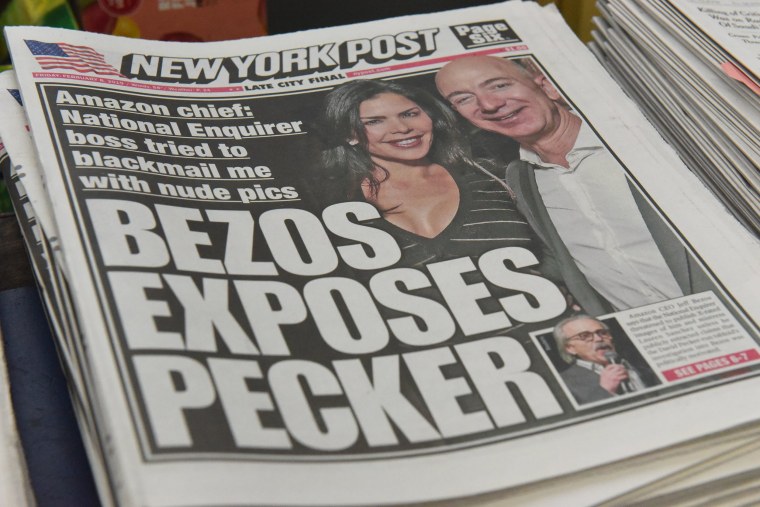Public sentiment about Jeff Bezos has reached a record low, following a news cycle peppered with negative headlines about the Amazon founder and chief executive officer.
Bezos has rarely been out of the spotlight in the past few months, breaking news of his divorce on Twitter, posting on Medium about his face-off with the National Enquirer and, most recently, shocking New Yorkers by deciding not to move ahead with plans to locate the company's second headquarters in Long Island City. And that was before news broke that Amazon — valued at $1 trillion last year — did not pay a penny in taxes in 2018.
In the two days following the Valentine’s Day disclosure that Amazon had backed out of a multibillion-dollar investment in New York City, online sentiment about Bezos was 92 percent negative, according to measurement firm Crimson Hexagon, which looks at public conversations online on Twitter, Reddit, Tumblr, blogs, comments, and forums.
While Bezos has attracted steadily declining public sentiment since the beginning of 2017, nixing HQ2 resulted in overwhelmingly negative feelings towards the company founder.
Bezos now finds himself in the white-hot center of techlash, a movement that sees the public focusing on the negative sides of the digital revolution. On a list of key tech players, Bezos scored the highest negative score, with 87 percent. Facebook’s Mark Zuckerberg had a 71 percent negative rating, “Shark Tank” host Mark Cuban drew a 65 percent negative score, while Apple CEO Tim Cook rates 61 percent. Bill Gates was the only executive to score more favorably, with 55 percent positive and 45 percent negative.
Q Scores, which analyzes the likability of business leaders and celebrities, shared data with NBC News on Thursday that revealed for the period from Jan. 22 to Feb. 7, Bezos had a negative score of 29 percent. The average among CEOs is 20 percent.
Bezos did manage to diffuse some of the negative feelings at one point this year. As recently as Feb. 4, around the time the Bezos-owned Washington Post said it would buy a Super Bowl ad to champion journalism, Bezos sentiment was only 44 percent negative, according to Crimson Hexagon.
Sentiment for Bezos reached one of its highest points on Feb. 7 after his "No thank you, Mr. Pecker" post on Medium, where he fought back against David Pecker, publisher of the National Enquirer. In his plainspoken blog, Bezos exposed ugly conversations regarding potential publication of intimate photographs of himself and his girlfriend, Lauren Sanchez.
“It’s remarkable. People who should hate him are rallying to his side,” Dorothy Crenshaw of Crenshaw Communications, a tech PR firm, told NBC News after Bezos published his post. “I’m struck by how many people have reflexively supported him. The same people who thought Peter Thiel was the worst person in the world for taking down Gawker."
Thiel, a tech billionaire and Facebook shareholder, backed a lawsuit against gossip site Gawker after it published a sex tape featuring a wrestler, Hulk Hogan. The website ceased publishing soon after the court battle.
Crenshaw questioned whether positive support for Bezos may have been driven by some other factors: Bezos’ rescue of The Washington Post, the suggestion that the Amazon chief was targeted, and the backdrop of connections between Pecker, the White House, and Saudi Arabian Crown Prince Mohammed bin Salman.
"I think we’re seeing the sentiment, of customers at least, not caring or getting into his corner and saying, ‘Good for you,'" agreed Kristine Ehrich, marketing professor at San Diego State University.
Despite the negative attention for Amazon's chief executive, institutional confidence in the company itself is high. According to a survey by the Baker Center for Leadership and Governance on “American Institutional Confidence,” released in October, Amazon ranked second behind the military in a list of institutions that instilled most confidence.
But tech companies face a continuing challenge to restore public trust, said Jean-Claude Goldenstein, founder of online measurement firm Creopoint.
“The most frequent comments reflect wide concern with trust in AI, system breaches, market dominance, distribution of fast-spreading fake news and counterfeit products, corporate governance, potential interference in politics, and other reputation risks.”
